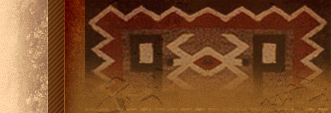 |
 |
| |
Burning Through the Roots, Part 12
|
|
| |
It would be easy to say that what happened on Pine Ridge in the end was driven simply and solely by greed. But that wouldn't be true. It was driven by arrogance, the same arrogance that is now causing community leaders and policy wonks across the West to grab a handful of statements about wildfire safety and start tearing down the trees in urban parks because they don't remember, or maybe never knew, DellaSala's version of the Hippocratic Oath for foresters: do no harm. Loggers wouldn't salvage-log if they really understood that they don't have the right or the wisdom to act on partial knowledge; they don't want the forests to disappear, after all. They'd be out of a job. Ranchers wouldn't graze too many cattle on their land if they knew it was going to mean their grandchildren had to watch their homes burn to the ground. They love the land, their children, and their way of life. The reason people can and do enslave strong land for personal profit and cripple it as a result is that they don't have the wisdom of "a rich and mystical perception of all life as a continuous, all-encompassing eventual flow, and of humanity's complete oneness with all this diffused and eternal stream." Which brings us back to story of the Northern Cheyenne, burning deep in the bowels of Sowbelly. People today look at a story like that one and think, "We wouldn't do that now." But we would. And we do.
The call for papers for this very meeting on Cosmos, Nature, and Culture began with the following words:
"No one knows for sure, but it is estimated that there are something like 1024 stars in the universe. When talking about numbers so unimaginably large, our world seems cosmically insignificant. But as far as we know, we're the only ones who count—in two senses of the word: We alone can count the stars, and it seems to count for something that we do."
"We are the only ones who count," the statement says, and it goes on to explain that "count" refers to possession and use of an abstract number system. So the "we" who count are clearly human beings, and human beings only -- not just here on Earth, but in all of Creation, the whole Cosmos.
I am certain this passage was not intended to be either arrogant or insulting. But that it could slip into our lives so easily, without setting off alarms of outraged awareness, should terrify us all. For it is this view of humanity's relationship to nature that permits people to overgraze the Land, salvage log it, and destroy its soils, waters, and air. More telling, this view of humanity is also the force that drove the Cheyennes' story underground a hundred and thirty years ago. It is the weapon that killed them, for it provided the motive that issued the orders at every level of authority. And it is the weapon that today -- this very moment as I speak to you -- kills Indigenous peoples in the Amazon basin. Because this culture is still trying to obliterate the wisdom of Indigenous peoples in a river of blood. As long as the view of humanity as "the only one that counts" exists in our conferences or business offices or the halls of our government, this culture's hand remains upon the weapon that kills the Earth and everything that is a part of it.
|
|
|
|
|
|
 |
|
|

